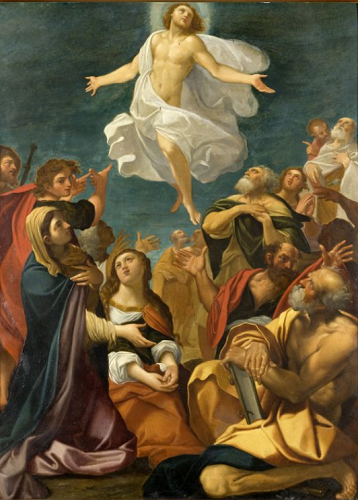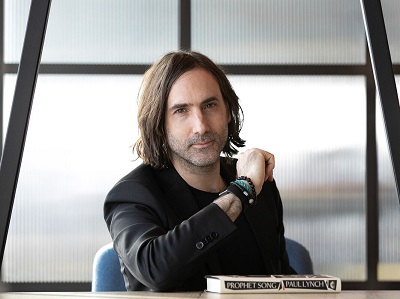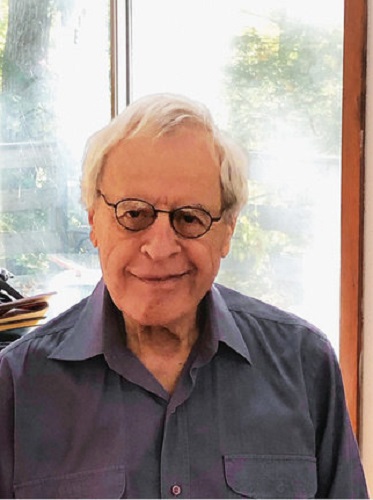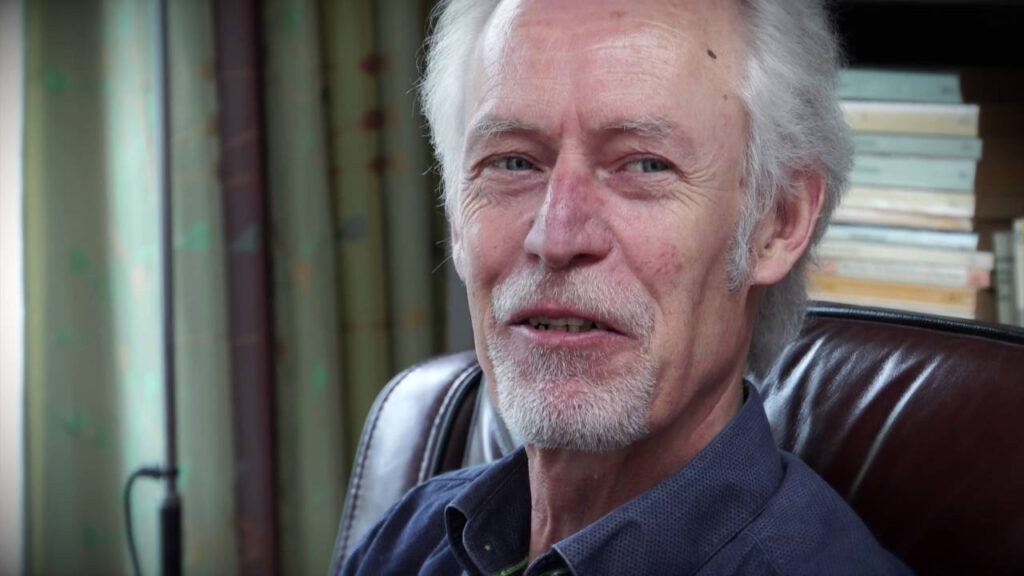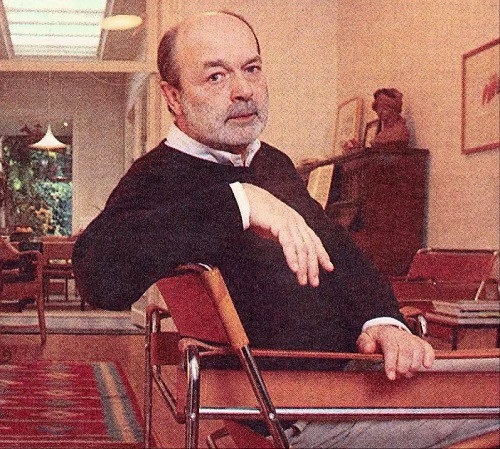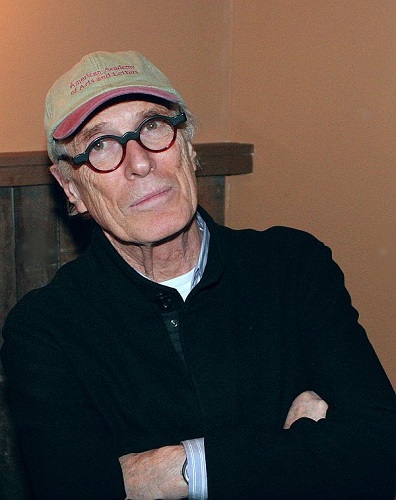De Ierse schrijver die Paul Lynch werd geboren op 9 mei 1977 in Limerick in het zuidwesten van Ierland. Zie ook alle tags voor Paul Lynch op dit blog.
Uit: Lied van de profeet (Vertaald door Tjadine Stheeman en Lidwien Biekmann)
“De avond is gevallen en ze heeft het kloppen niet gehoord, ze staat voor het raam naar de tuin te kijken. Geluidloos verdiept het donker zich om de kersenbomen. Verdiept zich om de laatste bladeren en de bladeren verzetten zich niet tegen het donker, maar aanvaarden het donker fluisterend. Ze is moe, haar dag zit er bijna op, maar er moet nog van alles gedaan worden voordat het bedtijd is, de kinderen hebben gegeten en zitten nu in de woonkamer, dit kleine momentje van rust bij het raam. Kijkend naar de donkerende tuin voelt ze het verlangen om met het donker te versmelten, om naar buiten te lopen en in het donker te gaan liggen, tussen de gevallen bladeren te gaan liggen en daar de nacht door te brengen, om wakker te worden bij zonsopgang en als herboren met de nieuwe ochtend op te staan. Maar dan het geklop. Eerst verweeft het zich met haar gedachten, het harde, onafgebroken geroffel, de klopper blijft zo maniakaal kloppen dat ze begint te fronsen. En dan hoort ze ook Bailey op de glazen deur naar de keuken kloppen, hij roept naar haar: mam, wijzend naar de gang zonder op te kijken van het tv-scherm. Eilish loopt als vanzelf met de baby op haar arm naar de gang, doet de voordeur open en voor de afgesloten glazen portiek staan twee mannen, bijna gezichtloos in het donker. Ze doet het buitenlicht aan en ze herkent de mannen direct aan hun houding, de kille avondlucht lijkt te ademen wanneer ze de portiekdeur openschuift, de stille woonwijk, de regen die haast geruisloos op St. Laurence Street valt, op de zwarte auto die voor het huis geparkeerd staat. De mannen lijken het gevoel van de avond met zich mee te dragen. Vanuit haar eigen beschermende gevoel observeert ze hen, de jonge man links vraagt of haar man thuis is en hij kijkt haar op een speciale manier aan, met een afstandelijke maar onderzoekende blik alsof hij probeert iets binnen in haar te vangen. In een oogwenk heeft ze de straat afgespeurd, ze ziet een eenzame wandelaar met een hond onder een paraplu, de wilgen knikken naar de regen, aan de overkant de flitsen van een groot tv-scherm in het huis van de familie Zajac. Ze roept zichzelf tot de orde, moet bijna lachen om dat schuldbewuste gevoel dat automatisch opkomt als de politie ineens op je stoep staat. Ben begint te spartelen in haar armen en de oudere man in burger rechts kijkt naar de baby en zijn uitdrukking lijkt te verzachten, daarom richt ze het woord tot hem. Ze weet dat hij ook vader is, zulke dingen weet je gewoon, die andere kerel is veel te jong, te netjes en te knokig, ze wil wat zeggen, merkt dat haar stem plotseling stokt. Hij komt straks thuis, over een uur of zo, zal ik hem even bellen?”
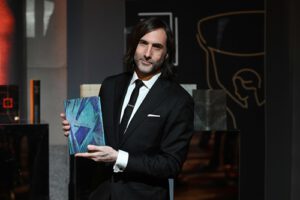
Paul Lynch (Limerick, 9 mei 1977)
De Amerikaanse dichter Charles Simic werd geboren in Belgrado op 9 mei 1938. Zie ook alle tags voor Charles Simic op dit blog.
Autokerkhof
Hier eindigden al onze uitstapjes:
Onze vaders achter het stuur, onze moeders
Met picknickmanden op hun schoot,
Wij met open monden op de achterbank.
We reden zo de dageraad in.
Het land was vlak. Voor ons verrees een stad
Met brandende ramen van de ondergaande zon.
Dat alles verdween toen we de snelweg verlieten
En over een schemerig weiland voorthobbelden
Bezaaid met bierblikjes en snoeppapiertjes,
Tot we precies hier tot stilstand kwamen.
Eerst verloor de radiodominee zijn stem,
Vervolgens klapten alle vier de banden.
Als een nest ratelslangen
Knalden de veren uit de bekleding
En ondertussen probeerden wij kalm te blijven.
Later die nacht hoorden we gegiechel
Uit een kapotte lijkkoets – daarna, geen kik
Meer tot de dag van de Wederopstanding.
Vertaald door Wiljan van den Akker
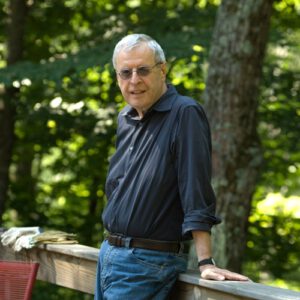
Charles Simic (Belgrado, 9 mei 1938)
Zie voor nog meer schrijvers van de 9e mei ook mijn blog van 9 mei 2022 en ook mijn blog van 9 mei 2020 en eveneens mijn blog van 9 mei 2019 en ook mijn blog van 9 mei 2018 en ook mijn blog van 9 mei 2015 deel 2.

